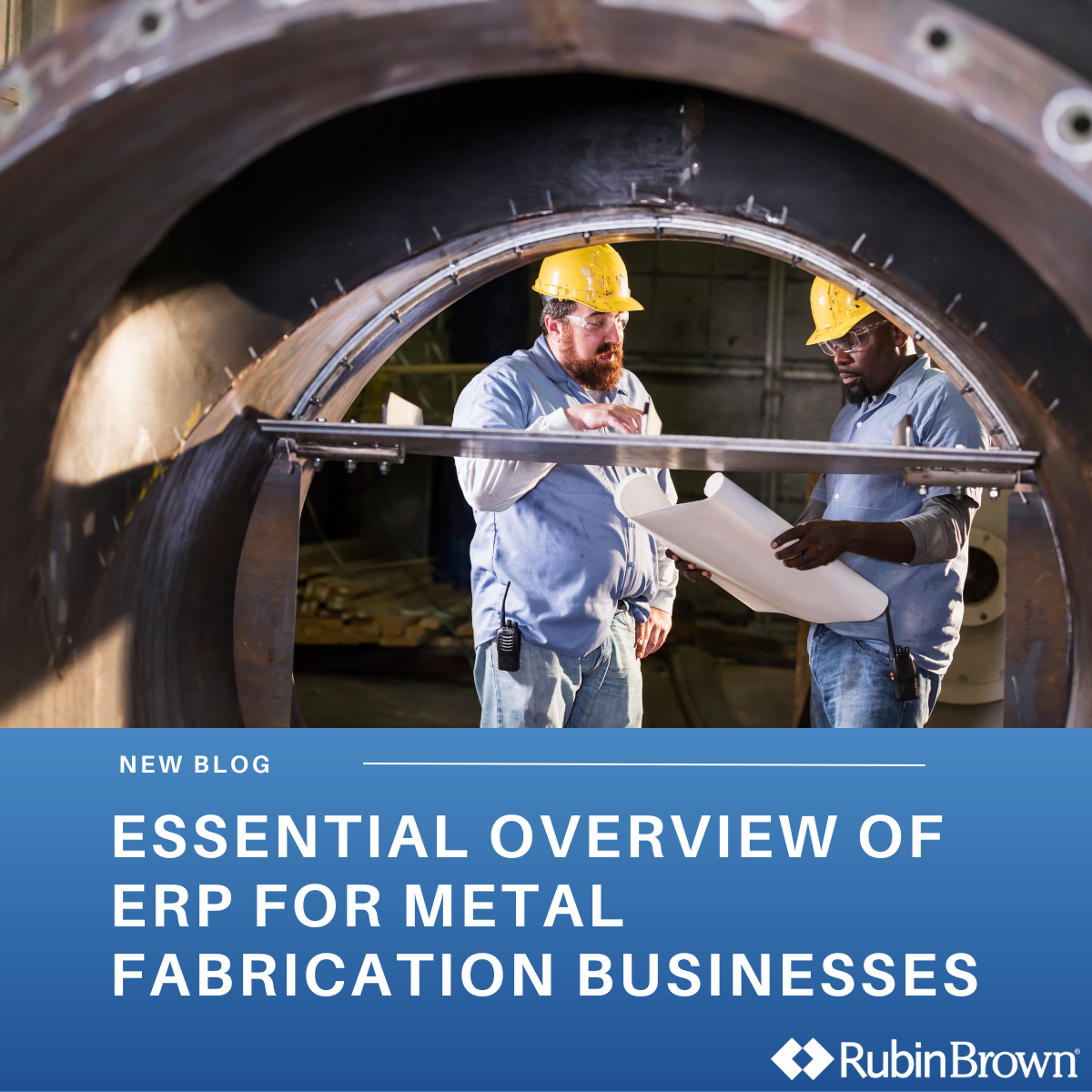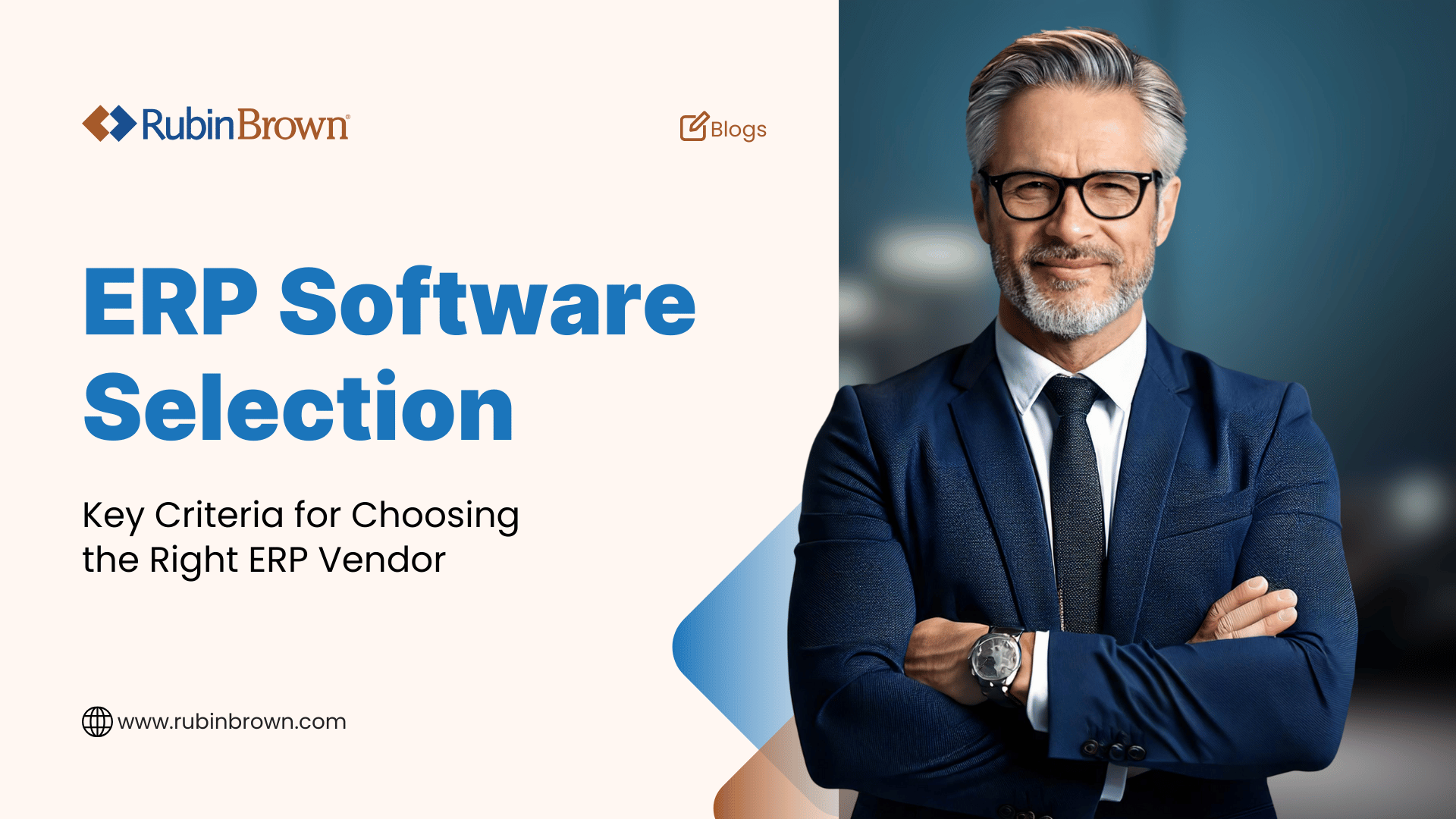The Game-Changing Benefits of an ERP Consultant: Why Your Business Needs One Now
ERP implementations are rarely a straightforward process. In fact, nearly 50% of ERP projects fail on their first attempt, often due to poor...

In Metal Fabrication, it's important to have software with special tools like:
These tools ensure a business can meet customer requirements and deliver on time while enabling efficient support for business growth.
A good ERP software simplifies tracking order status in production, including job costs and material requirements. It helps by showing the costs and availability of materials right away. Also, it aids in monitoring production times, planning for material replenishment, and ensuring compliance with industry regulations. Overall, it helps a business run smoother and grow faster.
With so many options out there, it's crucial to pick an ERP which fits the business' needs. The ability to see real-time progress, manage material costs, and ensure industry compliance are all crucial business needs. In Metal Fabrication, updated CAD drawings, bill of materials, quality control, and traceability are also essential.
Choosing the appropriate vendor is a critical decision, as significant as choosing the software itself. Basically, you are selecting a skilled partner to navigate the complexities of integrating the new system into your business. One of the key factors to consider is the vendor's methodology for implementation. Do they have a well-established and reliable process for rolling out the new software?

Expertise in the metal fabrication industry is essential. A vendor who understands the intricacies of metal fabrication processes and workflows can tailor the software to meet industry-specific needs effectively. The vendor should provide valuable guidance on decision-making regarding customization versus process redesign suggesting whether customization of the software or changing processes would be better for the business. Choosing the right vendor can greatly improve your ability to automate production, improve on-time delivery, and ensure material availability for capacity planning.
ERP consulting firms can provide valuable expertise and guidance when it comes to selecting the right ERP solution for your business. These firms offer visibility into various software options available in the market, including industry-specific solutions. They can help you evaluate different vendors based on factors such as cost, experience, reputation, methodology, and capabilities. By working with a consulting firm, like RubinBrown, you can ensure the chosen system meets the unique challenges and requirements of your business.
Once selected, they can also help with the pre-implementation process. Beginning the pre-implementation work early offers several advantages for the project, the business, and the implementer. It initiates critical tasks early on, mitigating potential setbacks in the initial stages. Pre-implementation work contributes to cost reduction and expedites the realization of value from the project. Early successes also bolster your project team's morale and establish a strong foundation for continued success. Typically, this initiative can reduce weeks on the front end of a project for the implementer allowing them to hit the road running when they show up.
The role of independent ERP consultants in the selection process of a solution is crucial for a metal fabricator. These consultants help businesses understand the different features and functions different systems can perform. They help pick the right system that fits what the business needs and the problems it faces.
Selection consultants have experience reviewing, selecting, and implementing various software packages within many different types of industries. This expertise is crucial, considering only 50% of ERP customers are satisfied with their system's functionality, the importance of selecting the right system and vendor for your business is essential.
With their extensive experience and knowledge, they have a deep understanding of the ins and outs of different ERP software applications and implementation partners. By partnering with an independent ERP selection consulting firm you gain a level of assurance that your project will succeed and deliver lasting value to your business for years to come.
One of the unique challenges in the Metal Fabrication industry is the need for compliance with quality control standards and traceability of materials. An ERP system designed for metal fabrication manufacturing can help with managing lead times for raw materials and Bills of Materials (BOM) for each project. The ERP solution also helps in tracking inspection processes, units of measurement, and vendor relationships for sourcing materials. By implementing ERP for the metal fabrication industry, companies can overcome these challenges and increase capacity and efficiency in their operations.
Unlike mass manufacturing, Make-To-Order (MTO) manufacturers customize each product according to individual customer requirements in a dynamic environment. Therefore, the ERP system must be capable of managing the intricate balance between lean principles and the flexibility required to accommodate varying customer demands.
Additionally, the ERP system should support real-time visibility into order status, production progress, and supply chain activities to enable quick decision-making and response to changing customer needs. By aligning lean systems with the unique requirements of metal fabricators, the ERP system becomes a strategic tool for enhancing operational efficiency, customer satisfaction, and overall business performance.
Addressing common challenges often leads to opportunities, necessitating pre-implementation groundwork or the inclusion of planning within the project. One aspect that may require attention is the potential need for physical layout alterations within operational spaces. Sometimes, operators originally placed machinery solely based on available space, without considering its impact on workflow. This shows the importance of careful design planning.
Additionally, implementing business process improvements is typically essential for ensuring operational efficiency and effectiveness. The introduction of a new data acquisition tool presents an opportunity to identify necessary data capture requirements and explore options for integration with the new ERP system. Providing packaging instructions and access to the latest product drawings directly to operators can enhance operational transparency and productivity.
Effective ERP implementation usually starts with meticulous planning and preparation. This involves setting specific project goals, forming a skilled project team, conducting in-depth analysis of business processes, and creating achievable timelines and goals.
Effective executive sponsorship and engagement are essential in achieving coherence between the ERP implementation and the strategic objectives of the organization. Executives must support the project, provide needed resources, and convey the significance of the ERP system to all stakeholders.
Change management and training are crucial for successful ERP implementation. This involves providing thorough training to staff at all levels, emphasizing ERP benefits, and addressing any concerns or feedback during implementation. Creating a support system for continuous help and problem-solving can smooth the transition to the updated system.
We have highlighted how Enterprise Resource Planning (ERP) software plays a pivotal role enhancing operational efficiency within the manufacturing sector, especially for metal fabrication. ERP seamlessly integrates various functions such as inventory management, job costing, and production scheduling, empowering automation and enhancing visibility across the shop floor.
ERP designed for metal fabricators simplifies quoting, estimating, and material management, ensuring timely delivery and competitiveness. When choosing ERP software, prioritize real-time tracking and industry compliance. Partnering with ERP consulting firms provides valuable guidance in selecting the right solution.
Implementing ERP in the metal fabrication industry brings both opportunities and challenges. ERP systems tailored for this industry meet specific needs like quality control standards and material traceability. Given the dynamic nature of metal fabrication, where each customer's needs vary, ERP solutions must balance lean principles with customization. They also provide real-time visibility into production progress and shop floor control to meet these diverse demands effectively.
Challenges during ERP implementation in metal fabrication underscore the significance of meticulous pre-implementation groundwork and strategic planning. Addressing concerns such as physical layout alterations, enhancing business processes, and integrating data acquisition tools is important for ensuring operational effectiveness. Successful ERP implementation in metal fabrication hinges on meticulous planning, effective executive sponsorship, and robust change management strategies. Providing thorough training and continuous support enhances user acceptance and smooth system integration, leading to operational excellence and promoting business expansion.

ERP implementations are rarely a straightforward process. In fact, nearly 50% of ERP projects fail on their first attempt, often due to poor...

ERP projects are often described as make-or-break, and for good reason. The wrong choice can cost millions and stall growth, while the right one can...

Selecting an ERP system involves careful evaluation of ERP software and vendors, each with unique capabilities and benefits, as outlined in the ERP...